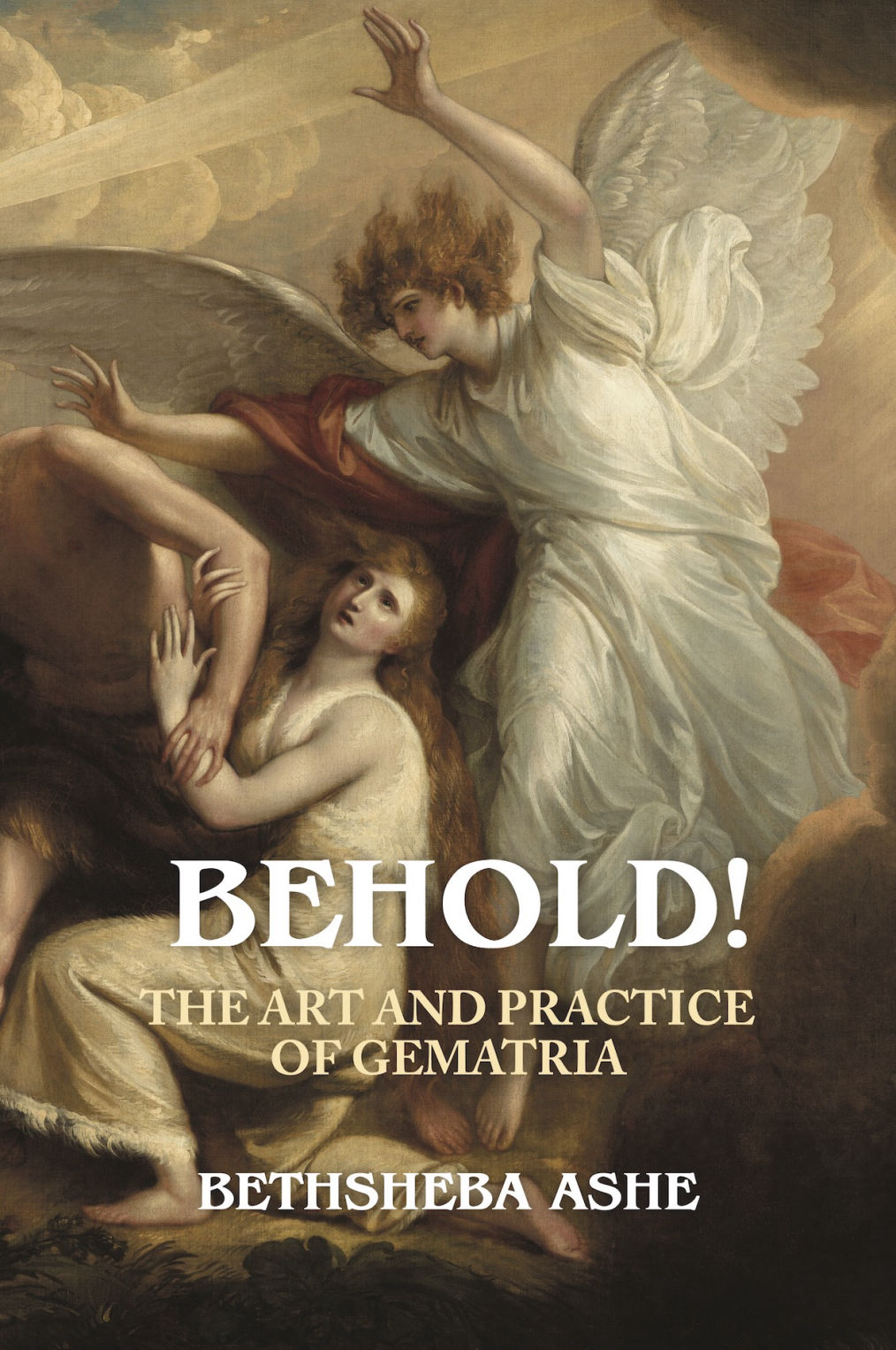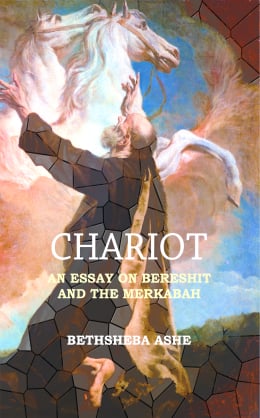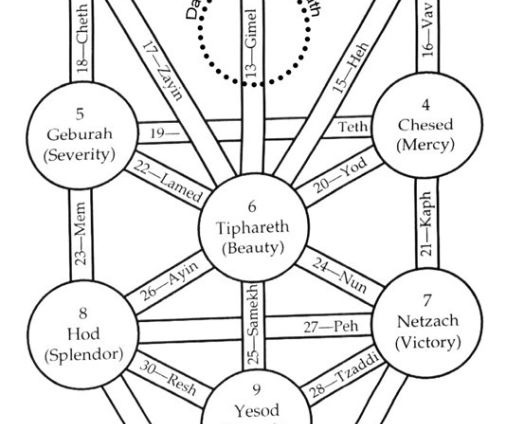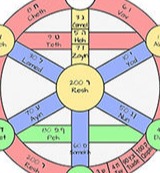Words and Calculations with the same Gematria value ...
| Word | Translation & Meaning | Transliteration | Strong's Number |
|---|
| אלף | Meaning: hence, to learn (and causatively to teach). Usage: learn, teach, utter. | ALP | 502 |
| אלף | Meaning: causative, to make a thousandfold. Usage: bring forth thousands. | ALP | 503 |
| אלף | Meaning: a family; also (from the sense of yoking or taming) an ox or cow. Usage: family, kine, oxen. | ALP | 504 |
| אלף | Meaning: hence (the oxs head being the first letter of the alphabet, and this eventually used as a numeral) a thousand. Usage: thousand. | ALP | 505 |
| אלף | Meaning: Usage: thousand. | ALP | 506 |
| אלף | Meaning: Eleph, a place in Palestine. Usage: Eleph. | ALP | 507 |
| אנס | Meaning: to insist. Usage: compel. | ANS | 597 |
| אנס | Meaning: figuratively, to distress. Usage: trouble. | ANS | 598 |
| אנתון | Meaning: ye. Usage: ye. | ANThVN | 608 |
| אפל | Meaning: dusky. Usage: very dark. | APL | 651 |
| אפל | Meaning: dusk. Usage: darkness, obscurity, privily. | APL | 652 |
| אתוק | Meaning: a ledge or offset in a building. Usage: gallery. | AThVQ | 862 |
| בטנים | Meaning: Betonim, a place in Palestine. Usage: Betonim. | BTNIM | 993 |
| דעואל | Meaning: Deuel, an Israelite. Usage: Deuel. | DOVAL | 1845 |
| חשק | Meaning: to cling, i. e. join, (figuratively) to love, delight in; elliptically; to deliver. Usage: have a delight, (have a) desire, fillet, long, set (in) love. | ChShQ | 2836 |
| חשק | Meaning: delight. Usage: desire, pleasure. | ChShQ | 2837 |
| חשק | Meaning: attached, i. e. a fence-rail or rod connecting the posts or pillars. Usage: fillet. | ChShQ | 2838 |
| חשק | Meaning: conjoined, i. e. a wheel-spoke or rod connecting the hub with the rim. Usage: felloe. | ChShQ | 2839 |
| יהויכין | Meaning: Jehojakin, a Jewish king. Usage: Jehoiachin. | IHVIKIN | 3078 |
| יעלא | Meaning: Jaala or Jaalah, one of the Nethinim. Usage: Jaala, Jaalah. | IOLA | 3279 |
| יציא | Meaning: issue, i. e. offspring. Usage: those that came forth. | ITsIA | 3329 |
| כנמא | Meaning: so or thus. Usage: so, (in) this manner (sort), thus. | KNMA | 3660 |
| מסוה | Meaning: a veil. Usage: vail. | MSVH | 4533 |
| סאן | Meaning: to shoe, i. e. (active participle) a soldier shod. Usage: warrior. | SAN | 5431 |
| עלוה | Meaning: moral perverseness. Usage: iniquity. | OLVH | 5932 |
| עלוה | Meaning: Alvah or Aljah, an Idumaean. Usage: Aliah, Alvah. | OLVH | 5933 |
| פלא | Meaning: properly, perhaps to separate, i. e. distinguish (literally or figuratively); by implication, to be (causatively, make) great, difficult, wonderful. Usage: accomplish, (arise. . . too, be too) hard, hidden, things too high, (be, do, do a, shew) marvelous(-ly, -els, things, work), miracles, perform, separate, make singular, (be, great, make) wonderful(-ers, -ly, things, works), wondrous (things, works, -ly). | PLA | 6381 |
| פלא | Meaning: a miracle. Usage: marvellous thing, wonder(-ful, -fully). | PLA | 6382 |
| קוה | Meaning: to bind together (perhaps by twisting), i. e. collect; (figuratively) to expect. Usage: gather (together), look, patiently, tarry, wait (for, on, upon). | QVH | 6960 |
| קוה | Meaning: a (measuring) cord (as if for binding). Usage: line. | QVH | 6961 |
| קטב | Meaning: ruin. Usage: destroying, destruction. | QTB | 6986 |
| קטב | Meaning: extermination. Usage: destruction. | QTB | 6987 |
| קשח | Meaning: to be (causatively, make) unfeeling. Usage: harden. | QShCh | 7188 |
| שובק | Meaning: Shobek, an Israelite. Usage: Shobek. | ShVBQ | 7733 |
| שחק | Meaning: to laugh (in pleasure or detraction); by implication, to play. Usage: deride, have in derision, laugh, make merry, mock(-er), play, rejoice, (laugh to) scorn, be in (make) sport. | ShChQ | 7832 |
| שחק | Meaning: to comminate (by trituration or attrition). Usage: beat, wear. | ShChQ | 7833 |
| שחק | Meaning: a powder (as beaten small); by analogy, a thin vapor; by extension, the firmament. Usage: cloud, small dust, heaven, sky. | ShChQ | 7834 |
| תוצאות | Meaning: 'The issues'. See proverbs 4:23 where it follows the word מִ֝מֶּ֗נּוּ : meaning from his number. | ThVTsAVTh | 8444 |
| יהוה הוה וה ה וה הוה יהוה | Meaning: An iteration of the name of God in seven parts. See ה וה הוה יהוה הוה וה ה for its partner. | IHVH HVH VH H VH HVH IHVH | 0 |
| בעדת אל | Meaning: 'In the company of AL'. From: Psalm 22:1. | BODTh AL | 0 |
| אשה | Meaning: 'woman'. This is a common mnemonic word, which means it represents a value other than the sum of its letters. The first time we are introduced to the word is in verse 2:23 of Genesis. This reads: 'And said Adam This One now bone of my bones and flesh of my flesh. This One shall be called Woman because from man was taken This One.' Note that the word זֹּֽאת meaning 'this one' are the chosen words to specify Woman by Adam and they are spoken three times. I make no suggestion that there was any allusion to the Hindu–Arabic numeral system that is used today. However this may suggest a visual allusion to the number as it could be represented on a counting board or an abacus. | AShH | 0 |
| אהל | Meaning: 'tent'. This is a common mnemonic word, which means it represents a value other than the sum of its letters. We see this mnemonic used in Genesis 18:9 when Abraham makes a bad joke. He is asked by the Angels, 'where is your Woman?' And he replies 'Behold! In the tent!' It might be that the word 'tent' borrowed the number of 'woman' (111) because it was a symbol of her authority over her domain. | AHL | 0 |
| פני + כסה - פרשז + עננו | From Job 26:9 "מאחז פני כסה פרשז עליו עננו", 'He covers [the] face [of his] throne - expanse + his clouds.' | PNI + KSH - PRShZ + ONNV | 0 |





Please SHARE this PAGE!